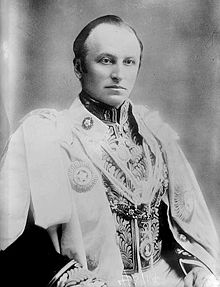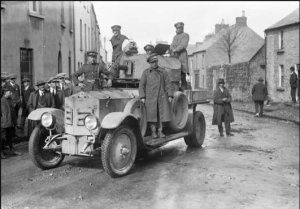Those who lead the clamour for Britain to leave the EU sometimes utter the strangest of remarks, betraying their complete lack of knowledge or understanding of their own nation’s history. One such recently came from Lord Lilley in an interview on BBC Television. When expressing his incomprehension at the length of time taken to negotiate the terms of the withdrawal agreement he opined that it didn’t take that long to negotiate Indian independence. The remark set me thinking about Britain’s complicity in drawing up borders that have either been the cause of, or have failed to end, a great deal of bloodshed, Indian independence being a case in point.
The movement for independence in India spanned 90 years, so hardly happened overnight as Lord Lilley seemed to be suggesting.

Britain’s response, in 1905, was to establish a border separating Bengal from the rest of the sub-continent, a move that served to increase the clamour for independence for all India. Despite this, India and its people played a vital role in support of Britain during World War I and were rewarded by the Government of India Act in 1919, but it would be almost 30 years before India finally gained independence.
It is true that the final settlement achieved in a couple of months in the summer of 1947 between drafting of a Bill and the implementation of independence. But it came at the end of a long period during which numerous options were tried without success and was accompanied by another arbitrary drawing of borders that created a Pakistan that consisted of two areas separated by almost 1,000 miles of Indian territory. Violent clashes between Muslims, Hindus and Sikhs followed, with up to 2 million deaths attributable to them. Parts of the border, notably the portion that defines Kashmir, remain in dispute to this day, 70 years after Indian and Pakistani independence. In the meantime East Pakistan saw a bloody civil war that ended with the creation of Bangladesh. Famine, widespread poverty and a series of military coups followed.
I could continue with a litany of similar examples, such as in the Middle East, where war over borders drawn by the victorious allies of both World Wars, of which Britain was a leading member, continue to this day, or in parts of Africa and in Cyprus. But the one that matters in the context of Brexit is that between Northern Ireland and the Republic of Ireland. Established in 1921 by the United Kingdom to create an enclave for the minority of Irish people who had no wish to leave the UK, in no sense is this “the Irish border”.
Irish independence came at the end of a century and more of campaigning which began the moment Ireland was annexed to the UK in 1800. The final years of that campaign were a bloody war of independence. The creation of the border as a condition of independence for the rest of the island led to a mercifully short, but bloody, civil war in Ireland

and to years of unofficial conflict involving paramilitary organisations on both sides. But the fact is that from the outset there was freedom of trade and travel between Ireland and the UK, across the Irish Sea as well as the land border, except during the years of greatest paramilitary activity and occupation by the British army in Northern Ireland.
Despite claims that there is no intention on the part of the UK to see a “hard border on the island of Ireland”, the fact is that the primary rationale of Brexit is to “take back control of our borders”.
Not only does the phraseology imply there will be a hard border at points of entry on mainland Britain, the airports and seaports, it is hard to see how this can not include the only land border between the UK and the EU.
Unless, that is, it is accepted that a different regulatory regime pertains in Northern Ireland to that in the rest of the UK. In truth, there is nothing strange about such a concept. The province has always had greater autonomy than any other part of the UK, as, indeed, did the whole of Ireland before 1922. Northern Ireland, for example, remains the only part of the UK where same sex marriage is forbidden. It is the only part of the UK where politics is defined by religious extremism.

Thanks for the reblog!
LikeLike
Some day, long after “extinction protocol” some benighted remnants will realize they hadn’t had borders for a while and consequently, no wars. “Was it the borders all along?” they will wonder. Basically yes. Borders are for kindergarten kiddies and bullies who want to control and abuse them. Normal people don’t need borders, just as they don’t need segregation, which is all that borders are for anyway. Separate them, tell each side it’s better than the other, arm them and watch them kill each other. So much fun! The truly sad thing is, Earthians are neither growing up nor catching on the the brutality of the separation scheme.
LikeLiked by 1 person
So, so, right, Sha’tara
LikeLiked by 1 person
I appreciate It
LikeLiked by 1 person